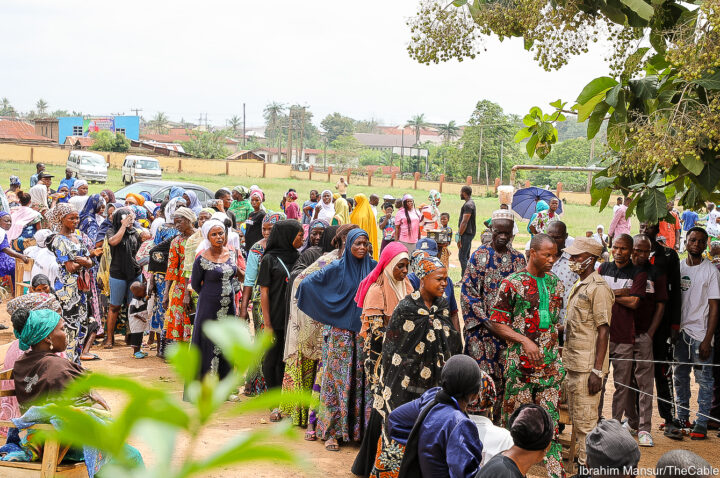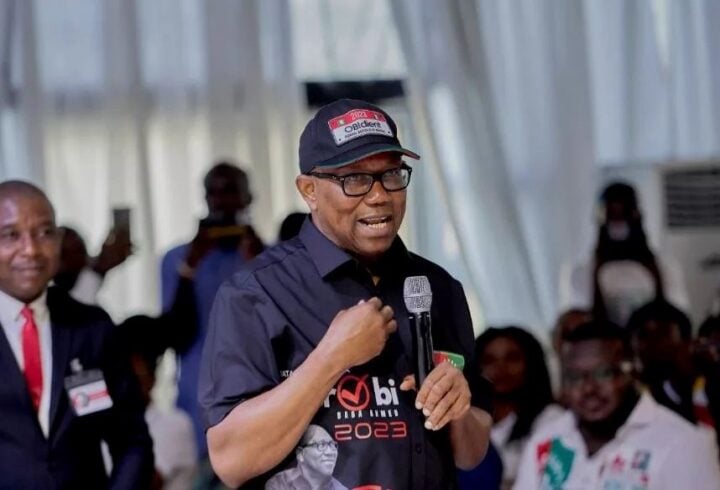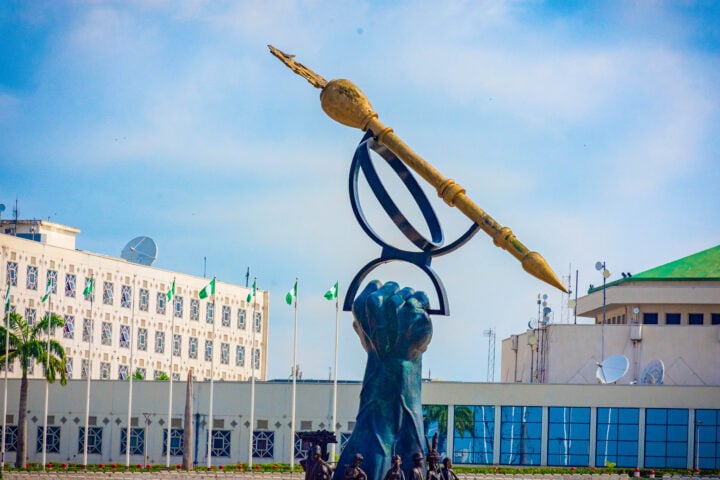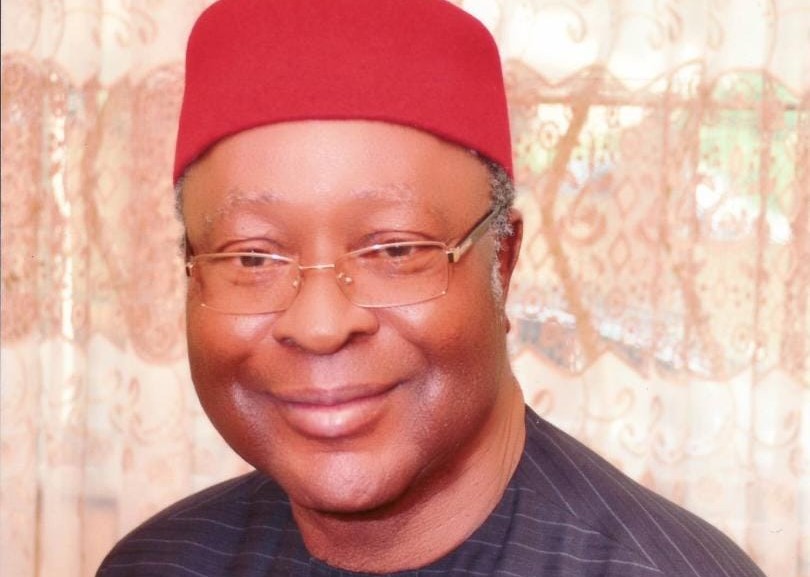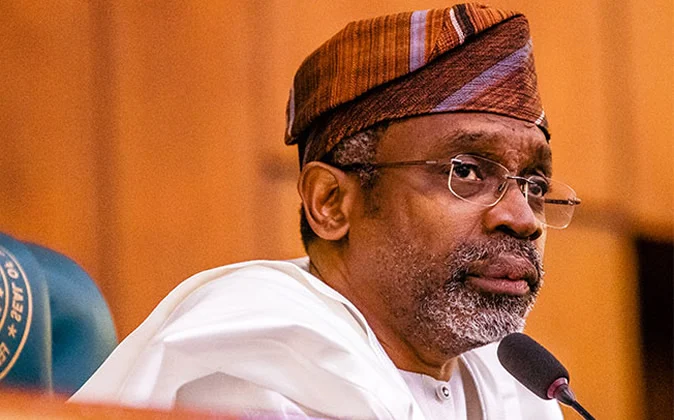Female politicians encountered hindrances at every level during the 2023 elections in Nigeria.
Elor Nkereuwem, a researcher in gender, political violence, corruption, and social movements at John Hopkins School of Advanced International Studies in Washington, said this in a recent study.
The report published by the Carnegie Endowment for International Peace, an international organisation focused on proffering solutions to global problems, found that female politicians are hindered by competitive positions and regional challenges during elections.
The report said challenges within parties continue to impede women’s participation in politics as women represented only 10 percent of the over 15,000 candidates who contested in the 2023 polls.
Advertisement
Nkereuwem said due to the low entry barriers, women find small political parties more favourable despite having slim chances of winning.
The report said about 90 percent of women politicians who ran in the 2023 elections did so under small political parties.
“Across all national and subnational categories, women represented just over 10 percent of more than 15,000 candidates who ran in the 2023 elections for president, the national assembly, governorships, and state assemblies. 90 percent of women candidates ran on the platforms of small parties,” the report said.
Advertisement
“Smaller political parties are more favorable for women candidates in general, smaller political parties appear to have lower entry barriers for women. In the 2019 elections, 96 percent of women candidates for federal seats emerged from small parties, according to the Centre for Journalism Innovation and Development (CJID).
“In the 2023 cycle, women represented 11 percent, on average, of candidates from small parties, with many small parties doing significantly better in women’s representation than others.
“The gender gap was significantly higher in dominant parties (APC and PDP) than in newer or smaller parties for national offices, including president, senate, and house of representatives.
“Comparatively, the gender gap was lower in subnational elections than for national offices, especially for small parties. In subnational elections, the smaller ADP party appeared the most favorable to women.
Advertisement
“Women made up 19 percent of all candidates, the highest representation across all eighteen parties. The two leading parties in Nigeria, the ruling APC and the main opposition PDP, presented some of the highest gender gaps in both national and subnational positions.
“In the ruling APC, women made up only 6 percent of candidates for national positions and 8 percent for subnational positions. For the main opposition PDP, this number was 5 percent across the board.”
WOMEN AS ‘NOVICE POLITICIANS’
The report shows that most of the women who contested a political position at national level are usually rookie politicians who are unable to withstand the competitive nature of the race, especially in the bigger parties.
Advertisement
The report said the high number of novice female candidates makes it difficult for women politicians to advance after losing an election.
“Women find themselves playing uncompetitively in Nigeria’s high-stakes politics, especially at the national level. Women aspirants and candidates may have higher attrition rates because many of them are novice politicians who seek to hold high-level positions,” the report said.
Advertisement
“In the cutthroat, zero-sum game of Nigerian politics, novice aspirants lack political capital and a competitive advantage in more competitive parties and positions. For instance, all seven women aspirants for president in the 2022 primary elections were novice candidates; none of them had previously held any elected office.
“Of these seven, only one candidate was on the presidential ballot in 2023, representing the fringe APM party. This high number of novice women contestants also correlates with the significantly low advancement persistence in women candidates.
Advertisement
“Men vying for high office are more likely to stay in politics than women, contesting multiple times or biding their time while being heavily involved in their respective political parties. Many women candidates, on the other hand, drop out after losing and are usually unable to sustain such commitment to politics.”
FAVOURABLE ROLES AND FINANCIAL SETBACKS
Advertisement
The report said high cost of nomination form hinders women’s participation in politics, adding that those with robust financial capacity are often used to influence party officials or for publicity.
“Out of 417 total candidates for fifty-six positions, women made up 25 percent of candidates running for deputy governor whereas they only made up 6 percent of those running for the more powerful and substantive governorships,” the report said.
“At the national level, only one woman ran for president across all political parties. Women were more competitive at the subnational level. Their candidacy for subnational legislative positions stood at about 10 percent, compared to 9 and 8 percent representation at the house of representatives and the senate, respectively.
“When compared to the unusually high number of women candidates standing for deputy governorship positions, women legislative candidates appeared less.
“More than half of the women senators elected in 2019 were on their second or third campaigns. Others stepped up from the lower legislative chambers. These novice women do not necessarily run for office to win but run for other strategic interests and publicity.”
GEOPOLITICAL DIFFERENCES
The report said female candidacy for subnational positions ranked lowest in the north-west region, while states with greater religious diversity such as Plateau, Taraba, and Gombe performed better .
The north-west recorded only three percent of women who contested federal legislative offices, while the north-central had six percent.
The south-west scored eleven percent, south-south had 12 percent, south-east recorded 13 percent, while the federal capital territory had 26 percent.
“Southern states performed significantly better than northern states. The overall representation of women candidates who ran for federal legislative offices in 2023 was 9 percent of about 4,200 candidates representing all eighteen parties. This percentage of representation varied by region and by type of election,” the report added.
“The poorest-performing region for women’s candidature was the north-west, with women candidates representing just 3 percent of all candidates running for seats in the national assembly.
“The south-east represented the highest proportion of women candidates, at 13 percent for federal legislative positions.
“In general, southern states appeared more accessible to women candidates, with an average of 12 percent representation, compared to the average 5 percent representation in northern states.”
THE LABOUR PARTY PROBLEM
The report said the involvement of youths in the 2023 election hindered women’s chances of winning as more men who ran under the Labour Party were voted instead of women contesting the same positions in other larger platforms.
“In the 2023 elections, heightened youth involvement—and support for the disruptor Labour Party—hurt outcomes for women candidates, especially those representing Nigeria’s main political parties,” the report added.
“The Labour Party’s upset, paradoxically, had negative consequences for women in parliament who were standing for reelection as candidates of Nigeria’s dominant parties but lost their seats to male candidates running on the platform of the Labour Party.”
Add a comment
